What are Aluminum Pipes
Aluminum pipes are cylindrical hollow sections made of aluminum or its alloys, offering a combination of strength, lightness, and corrosion resistance. These pipes are utilized across various industries and applications, from plumbing and infrastructure to automotive and aerospace engineering. The intrinsic properties of aluminum such as its low density, malleability, and excellent thermal and electrical conductivity make it an ideal material for pipe manufacturing.
The production of aluminum pipes often involves extrusion, where the metal is forced through a die to create its shape, or rolling, where sheets of aluminum are formed into a cylindrical profile and welded along the seam. The pipes can undergo further processes like anodizing or coating to enhance their surface characteristics for specific applications.
Aluminum pipes operate on the principle of providing a durable conduit for the transport of fluids, gases, and even solids in granular or powder form. They offer a lightweight alternative to pipes made from heavier metals like steel or copper, reducing the overall weight of structures and systems where they are installed. This weight advantage is especially valuable in industries where material weight impacts performance or transportation costs, such as in automotive design or material handling systems.
Businesses and contractors select aluminum pipes for their projects because they offer an excellent balance between weight, strength, and resistance to environmental factors. In addition to their functional attributes, aluminum pipes can also contribute aesthetically when used in visible frameworks or decorative installations due to their sleek metallic appearance.
Types of Aluminum Pipes
Aluminum pipes come in various types tailored to meet specific needs and applications. The 6000 series aluminum alloy pipes are renowned for their versatility and are often used in structural applications due to their excellent strength-to-weight ratio. Commonly found in construction and architectural frameworks, these pipes blend silicon and magnesium to achieve a good balance of formability and toughness.
For more demanding applications that require higher strength and stress resistance, the 7000 series aluminum alloy pipes are preferred. These contain zinc as the primary alloying element, providing a substantial boost in strength which makes them ideal for aerospace, military, and competitive sporting equipment where durability under extreme conditions is crucial.
The 1000 series aluminum pipes are highly pure forms of aluminum with 99% aluminum content. These pipes offer superior corrosion resistance and electrical conductivity but have lower mechanical strength, making them suitable for electrical applications such as conduits and bus bars.
In addition to these alloy series, aluminum pipes also come in different shapes such as round or square cross-sections. Round aluminum pipes are commonly used for fluid transport systems including hydraulic and pneumatic lines, while square aluminum pipes find utility in structural applications where they might serve as framing components or support beams.
How to Choose Aluminum Pipes
Selecting the right aluminum pipe for your business requires careful consideration of several factors that align with the intended use. When evaluating options on Alibaba.com for wholesale purchase, consider the specific attributes of each type of pipe. For instance, if structural integrity is paramount for construction purposes, 6000 series aluminum pipes may be most suitable due to their favorable strength-to-weight ratio.
For applications involving high-stress environments like aerospace or defense industries, opting for 7000 series aluminum pipes would be advisable due to their enhanced durability. Conversely, if electrical conductivity is a primary concern—perhaps in power transmission—then 1000 series aluminum would be the optimal choice.
The temper designation of the pipe indicates the heat treatment condition it has undergone and affects mechanical properties such as strength and hardness. T3-T8 tempers denote various degrees of hardening and aging processes that can impact how suitable a pipe is for bending or welding operations. Hence, understanding temper designations is crucial when choosing an aluminum pipe that requires further fabrication.
Surface treatment options such as anodizing or powder coating not only contribute to the aesthetic appeal but also enhance corrosion resistance—a critical factor if the pipe will be exposed to harsh environments. Moreover, considering processing services like cutting or molding available through Alibaba.com can facilitate customization according to project requirements.
Lastly, businesses should assess supplier capabilities on Alibaba.com by reviewing product descriptions and utilizing available filters like grade series or application industries. This ensures that the selected aluminum pipes meet both quality standards and logistical considerations necessary for efficient B2B transactions.
Best Aluminum Pipes on Alibaba.com
When sourcing wholesale aluminum pipes on Alibaba.com, businesses gain access to a broad spectrum of reliable suppliers from around the globe. The platform streamlines the procurement process by offering an extensive selection of products that cater to a variety of industrial needs—ranging from fluid conveyance in hydraulic systems to structural supports in construction projects.
Alibaba.com stands out by facilitating seamless communication between buyers and suppliers while offering services like Trade Assurance that help ensure transactions are secure until delivery is complete. This service provides peace of mind for businesses looking to invest in bulk quantities of materials without compromising on quality assurance.
The platform's user-friendly interface allows buyers to refine their search based on specific product attributes such as material grade, surface treatment, dimensions, and processing service options—ensuring they find products that precisely match their requirements. Furthermore, Alibaba.com's global reach means businesses can source competitively priced aluminum pipes from various regions with confidence in both product diversity and supplier reliability.
Common FAQs for Aluminum Pipes
What are the main advantages of using aluminum pipes in industrial applications?
Aluminum pipes offer a high strength-to-weight ratio, excellent corrosion resistance, and good thermal and electrical conductivity, making them suitable for a wide range of industrial applications including fluid transport, structural components, and electrical conduits.
How do the different series of aluminum alloys like 6000 and 7000 series differ?
The 6000 series aluminum alloys typically blend silicon and magnesium to offer a balance of strength, formability, and corrosion resistance, ideal for construction and architectural uses. The 7000 series is enriched with zinc, providing higher strength for demanding applications such as in aerospace or defense industries.
What does the temper designation of an aluminum pipe indicate?
The temper designation of an aluminum pipe denotes its heat treatment condition, which affects its mechanical properties. For example, T3-T8 temper designations range from soft to fully heat-treated conditions, impacting the material's strength, hardness, and suitability for fabrication processes like bending or welding.
Can aluminum pipes be customized for specific applications?
Yes, aluminum pipes can be customized through various processing services such as cutting, bending, punching, welding, and molding to meet the specific requirements of different applications.
Are there surface treatment options available for aluminum pipes?
Aluminum pipes can undergo surface treatments like anodizing, powder coating, polishing, or sandblasting to enhance their aesthetic appeal or improve their resistance to corrosion and wear.
What should be considered when selecting an aluminum pipe for fluid transport systems?
When choosing an aluminum pipe for fluid transport systems, it's crucial to consider the pipe's mechanical properties, corrosion resistance, internal smoothness to minimize friction losses, and compatibility with the fluid being transported.
Is there a difference between welded and seamless aluminum pipes?
Welded aluminum pipes are made by forming sheets of aluminum into a cylindrical shape and welding along the seam. Seamless aluminum pipes are extruded into their final shape without any welded joints. Seamless pipes generally offer increased pressure resistance and are preferred in high-pressure applications.
How does alloy composition affect the properties of an aluminum pipe?
The alloying elements in an aluminum pipe determine its mechanical properties such as tensile strength, yield strength, hardness, and formability. Different compositions are designed to enhance specific characteristics for targeted industrial uses.
What types of shapes are available for aluminum pipes?
Aluminum pipes can be found in various shapes including round for traditional piping applications and square or rectangular profiles often used in structural and architectural projects.
How does wall thickness affect the performance of an aluminum pipe?
The wall thickness of an aluminum pipe influences its strength and pressure handling capabilities. Thicker walls increase rigidity and allow the pipe to withstand higher internal pressures but also add to the overall weight.
In what applications would a non-alloyed aluminum pipe be used over an alloyed one?
Non-alloyed aluminum pipes are typically used in applications where high electrical conductivity is required or where corrosion resistance is more important than mechanical strength such as in certain electrical or chemical environments.
Can aluminum pipes be used in high-temperature applications?
Aluminum pipes have a lower melting point compared to steel pipes and may not be suitable for extremely high-temperature applications. However, they can still be used in many high-temperature environments depending on the specific alloy and temper designation.
What considerations should be made when using aluminum pipes for outdoor applications?
For outdoor use, it's important to consider the environmental conditions such as exposure to corrosive elements. Choosing an appropriately treated or coated aluminum pipe will help ensure longevity and performance under outdoor conditions.
How does the diameter and length of an aluminum pipe affect its use in construction?
The diameter and length of an aluminum pipe determine its volume capacity and the span it can cover. Larger diameters can handle more volume while longer lengths reduce the need for joints, which can simplify construction and reduce potential leak points.
Are there any industry standards or certifications that apply to aluminum pipes?
Aluminum pipes are subject to various industry standards such as ASTM, DIN, or GB standards that specify dimensions, tolerances, material compositions, mechanical properties, and testing methods to ensure quality and performance.


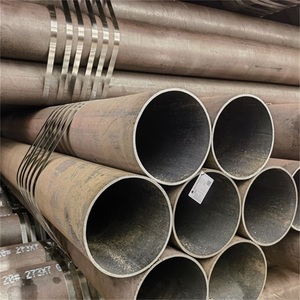

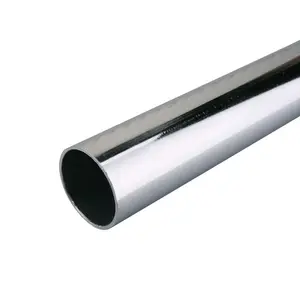




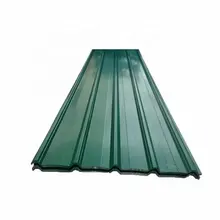




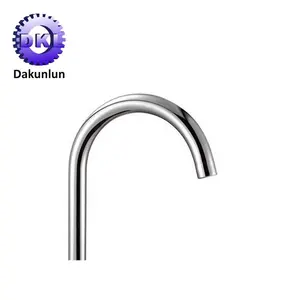
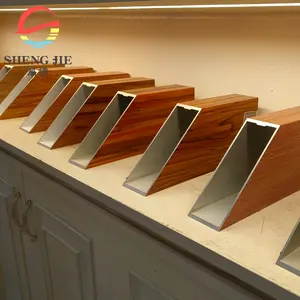

















 浙公网安备 33010002000092号
浙公网安备 33010002000092号 浙B2-20120091-4
浙B2-20120091-4